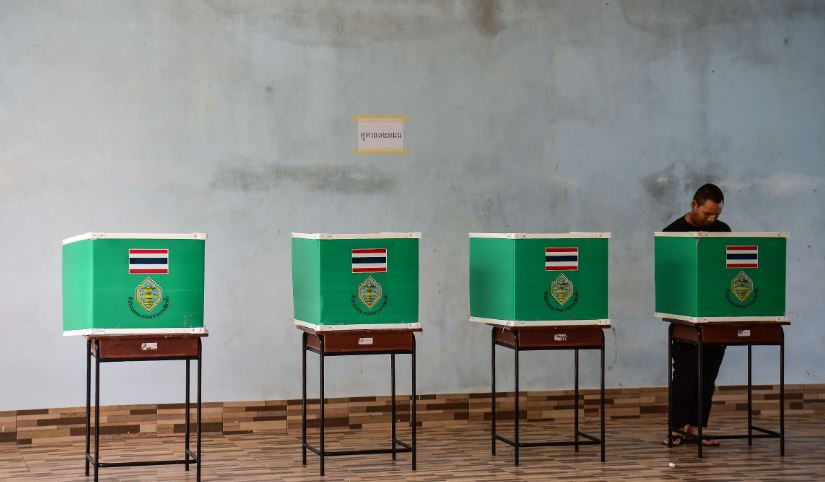The opposition Pheu Thai party, which has three candidates running for prime minister and is calling for raising the minimum wage, providing welfare cash handouts, and keeping the military out of politics, is currently leading surveys
 KRC TIMES Desk
KRC TIMES Desk

Bangkok: Voting for the Thailand elections has begun Sunday and will determine the fate of the current government led by Prime Minister Prayut Chan-o-cha which has faced criticism for its handling of political dissent and human rights issues.
Election officials anticipated a strong turnout when polls opened at 8 am Bangkok time (9 p.m. ET Saturday). In Thailand’s bicameral system, 500 members of the House of Representatives will be chosen by the country’s 52 million eligible voters in this year’s election. Each voter casts two ballots: one for a local constituency representative and the other for their choice of party-list MPs, who represent the national party.
Due to the junta-era constitution’s major influence over who can ultimately form a government, opposition parties must win by a sizable margin.
The opposition Pheu Thai party, which has three candidates running for prime minister and is calling for raising the minimum wage, providing welfare cash handouts, and keeping the military out of politics, is currently leading surveys.
It is a divisive political dynasty led by former prime minister Thaksin Shinawatra of the rich Shinawatra family. Paetongtarn, the 36-year-old youngest daughter of Thaksin, is running for prime minister. Srettha Thavisin, a 59-year-old real estate magnate who wants to concentrate on addressing economic disparity, supporting LGBTQ+ rights including same-sex marriage while bolstering the sluggish economy, is also a contender for Pheu Thai.
However, Move Forward, a party that is extremely well-liked among young Thais for its radical reform agenda, is another opposing force at work. Pita Limcharoenrat, 42, a Harvard alumnus with a background in business, is in leading the party.
Thailand is a constitutional monarchy with a parliamentary system of government. The country’s elections are held every four years, with the last general election taking place in 2019.
The 2019 general election was the first held since the military coup in 2014, which saw the military junta take control of the government. The election was seen as an opportunity for the country to return to civilian rule, but the results were controversial.
The pro-military Palang Pracharat Party won the most seats in parliament after gathering enough support from coalition parties to form a government. But the opposition claimed that the election was rigged in favor of the military-backed party. There were also allegations of irregularities and voter intimidation.
Despite the controversy, the new government was formed with Prayut Chan-o-cha, the former military general who led the 2014 coup, as the prime minister. His government has faced criticism for its handling of political dissent and human rights issues, with several opposition leaders facing legal charges.
This time with the United Thai Nation, a new political party, Prayut is vying to reclaim the top post. It has been nine years that he has been in power.
In 2020, Thailand saw a wave of pro-democracy protests that began in July and continued throughout the year. The protests were led by young people and student activists who were calling for political reforms and greater democracy.


